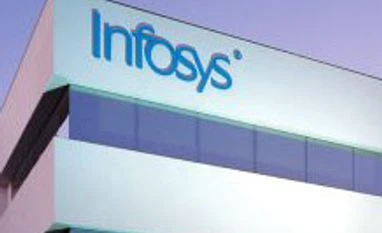Traders who bought out-of-the money puts and calls on Infosys yesterday, a wager known as a strangle that benefits when volatility increases, earned 245 per cent at 4:36 pm in Mumbai, based on the most-traded contracts. A similar strategy called a straddle returned 118 per cent, data compiled by Bloomberg show. Infosys shares tumbled 21 per cent to Rs 2,296.65, the biggest drop since April 2003, after the company's annual sales forecast trailed analysts estimates.
The windfall shows few traders anticipated Infosys would swing so much. The shares moved an average 11 per cent the previous two times Infosys reported results. India's second-largest software maker said annual sales may increase as little as six per cent in the year ending March 2014, versus the 12.7 per cent average estimate of analysts surveyed by Bloomberg.
More From This Section
"Obviously no one could predict such a move" in Infosys shares, Manoj Murlidharan, vice president at Mumbai-based India Infoline, said in a phone interview on Friday. "But those who got on the right side of the trade made a lot of money. The bearish squeeze will keep Infosys stock under pressure."
On Friday's share move was more than double what the options market was expecting as of yesterday, based on prices paid for April contracts with a strike price closest to yesterday's closing share price.
Shares of the Bangalore-based company closed yesterday at Rs 2,916.7. At the same time, the price of the Rs 2,900 straddle, which combines a put and a call at that strike price, was Rs 270. That indicates traders expected a move of about that amount, or nine per cent, in order to break even on the position.
A strangle combining 3,100 calls, yesterday's most-traded call contract, with 2,700 puts, cost Rs 112.95 yesterday, based on closing prices. The combination was valued at Rs 390.2 at the close on Friday.
Volumes in Infosys' put options jumped to 313,902 contracts from 125,421 contracts yesterday. Put trading exceeded calls for the first time in a month. Puts give the right to sell a security for a certain amount, called the strike price, by a given date. Calls convey the right to buy.
)